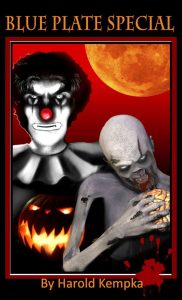How much should you charge for your eBook? Some folks believe that charging $2.99 and less will result in more sales. The 99-cent novellas will make good publicity, an easy way to get to know an author’s style of writing. If nothing else, it will generate balloon money for the author and publisher. But I know of people who started out at $5.25 for their book, and when they lowered it to $2.99, sales tanked. What’s more, the lower price cut into their royalties.
Amazon likes to recommend prices when I upload Kindle books for myself or for NTD authors. Basically, anything over $7 or under $3 won’t earn much. However, if you’re charging more for your eBook, you might want to run promos and specials where people can get the book for much less, thus meaning a larger audience. Many variables go into pricing and you might want to consider several things when you price your eBook, especially if you’re selling through multiple distributors.
- The size of your eBook. If you’ve written a 10,000 word novelette, you’d charge much less than you would for your 80,000 opus magnum. It’s a matter of fairness. Why charge $4.99 for an eBook that would only have twenty pages in print form? It would be like charging someone $20.00 (the cost of a balloon bouquet) for one balloon. In tandem, consider your primary goals, that is, education versus entertainment. People will shell out more money for vital information, such as tips on winter driving and survival then they might for tales about Mylar balloon adventures.
- Consider what other authors charge for the same size and genre. If you’re charging $10 for a 30,000 word zombie tale, but other authors are charging $1.99 for the same type of book, yours won’t sell many copies. If you’re only selling off your own website, you might have more leeway with price. My experience has been that most people prefer shopping through Amazon or Barnes & Noble over a private website. Why? If you shop on the NTD website, you’ll need a PayPal account, which requires a password. For that reason, I always provide links to Amazon, Smashwords, and Barnes & Noble. Most seller websites involve setting up an account and a password. It’s easier to remember one password (Amazon) than tracking different passwords for multiple websites.
- What are your plans for your book? If your work is a 10,000-word novelette, it can serve as an intro to your larger, more expensive works. Most folks won’t mind shelling out 99 cents for such a story. Your book—and your ideas—will fall into more hands. If they like your work, you’ve got more potential buyers for your larger stories. If you don’t have a 99-cent eBook, you might want to create one. Your entry-level priced eBook will give readers a chance to know your work.
- How large is your following? If you’re anything like Stephen King or Jonathan Maberry, your publisher might sell your eBooks for $10 each and more. That’s because both authors have dedicated fans who love their writing so much that they’ll gladly pay that to read their fiction. If you’re pitching to total strangers, they’ll balk, especially if they see other books of the same genre sell for $3.99.
You might consider having a list price but discount that price from time to time. This way, you’ll drive more interest in your books. No price is ever set in stone, and because the eBook world is constantly changing, you should evaluate your prices from time to time.
Your thoughts?






